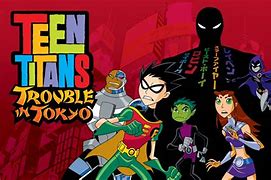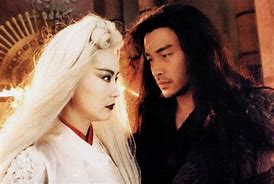PHENOMENALITY: *marvelous*
MYTHICITY: *fair*
FRYEAN MYTHOS: *comedy*
CAMPBELLIAN FUNCTION: *psychological, sociological*
In some retellings of the Aladdin story, the protagonist is incredulous when he's sent into a room full of treasure (what the Disney ALADDIN script calls "the Cave of Wonders") and is instructed to bring back only a plain old lamp.
I feel similarly nonplussed at the way the Disney ALADDIN swipes bits and pieces from the 1940 THIEF OF BAGHDAD, a copyrighted film released by United Artists, particularly since Disney is so litigious about anyone emulating any of their copyrighted works. But along with that puzzlement comes relief. All the things the Disney writers swiped were piddling oddments-- a sultan who likes to play with toys, a villain named Jafar (albeit with the spelling changed), and a hero's buddy named Abu (albeit changed from a human to a monkey). These elements in THIEF have great roles to play in the entire story, which I consider not just one of the great fantasy-films, but one of the great films of all time. But what Disney does with these elements is to change them into minor curiosities in a script with only modest ambitions. To mix metaphors a bit, it's as if someone stole a heap of gold from a treasure-room, but in the act of stealing it, changed it into a small pile of tin.
(Hmm, without getting into all the controversies that the opponents of "Orientalism" raised about this 1992 film-- how'd they miss that the scripters took a name that was originally applied to a Character of Color, played by an Actor of Color, and used the same name for a monkey?)
All that said, ALADDIN has its virtues. I'd like to think that the bravura opening isn't a swipe. In said opening, villainous Jafar tries to get the genie-bearing lamp from a Cave of Wonders that manifests as the head of a giant lion made of sand. In a movie brimming with nonsense-fantasy jokes, mostly stemming from a genie versed in Anachronism 101, the lion-headed treasure-cave is one of the few times ALADDIN tries to sell the viewer on pure wonder, the sort of fabulous strangeness that made Enlightenment Europe go nutty for the Thousand Nights and a Night.
The rest of the movie is a cute love story with engaging doggerel-songs, fair action-scenes, and lots of zany comedy. This Aladdin, if he was at all borrowed from any THIEF-movie, is closest to the gamboling Douglas Fairbanks Sr from 1924, at least in terms of wanting to tweak the nose of authority. Disney-Aladdin is also a thief, but like Abu from 1940, he's willing to share his booty with those less well off than he is. Still, his yearning for better things takes us back to Fairbanks, who's redeemed from his lowly status by falling in love with High Society. His beloved from the good side of the tracks, Princess Jasmine, is more one-note, but then, most Arabian Nights princesses are not much better.
One interesting thing about the meet-cure of Aladdin and Jasmine-- who meet while Jasmine is going about incognito, not unlike the historical Haroun al-Rashid-- is that Aladdin defends her when she, like he, unthinkingly shares someone else's possessions with the less fortunate. Aladdin saves the princess with his fast-talking street-smarts, but later, once he's got hold of the genie, he wants to remake himself into his idea of an Ideal Man for the High-Society Set. So in a sense he's still running a con of sorts, and he has to learn the lesson that Honesty is the Best Policy, particularly in romance.
I appreciate some of the script's verisimilitude-details. Unlike some of the original retellings of the tale, Jafar can only get the lamp if he uses a pawn with a particular strength of character, so that his selection of Aladdin is pretty well motivated. Jafar's ideal of marrying Jasmine to gain the throne comes out of left field, but I'm certainly glad the script didn't impute real romantic feeling to this very flat villain, in contrast to the "real" 1940 Jaffar. And there's good byplay between the evil vizier and his hench-parrot Iago, voiced by the inimitable Gilbert Gottfried.
I can't say the same for the "good" support-characters. A little of the monkey Abu went a long way, and when the film also introduced a sentient flying carpet, a tiger, and (late in the game) an elephant, I felt I was drowning in sidekick-schtick. Robin Williams' Genie of the Lamp is a slightly different kettle of fish. He's not only the source of most of the manic humor; he's also the dopey friend who sometimes says wise things, and so he's more crucial to the Reformation of Aladdin. I could have lived without the B-plot of Aladdin promising to release Genie from bondage, though.
ALADDIN was a feel-good success, spawning two sequels and a TV show, so in a sense it's somewhat immune to criticism. But just for the accomplishment of translating the appeal of Robin Williams into animation, I'd give it high marks in the realm of fantasy-comedies.






















